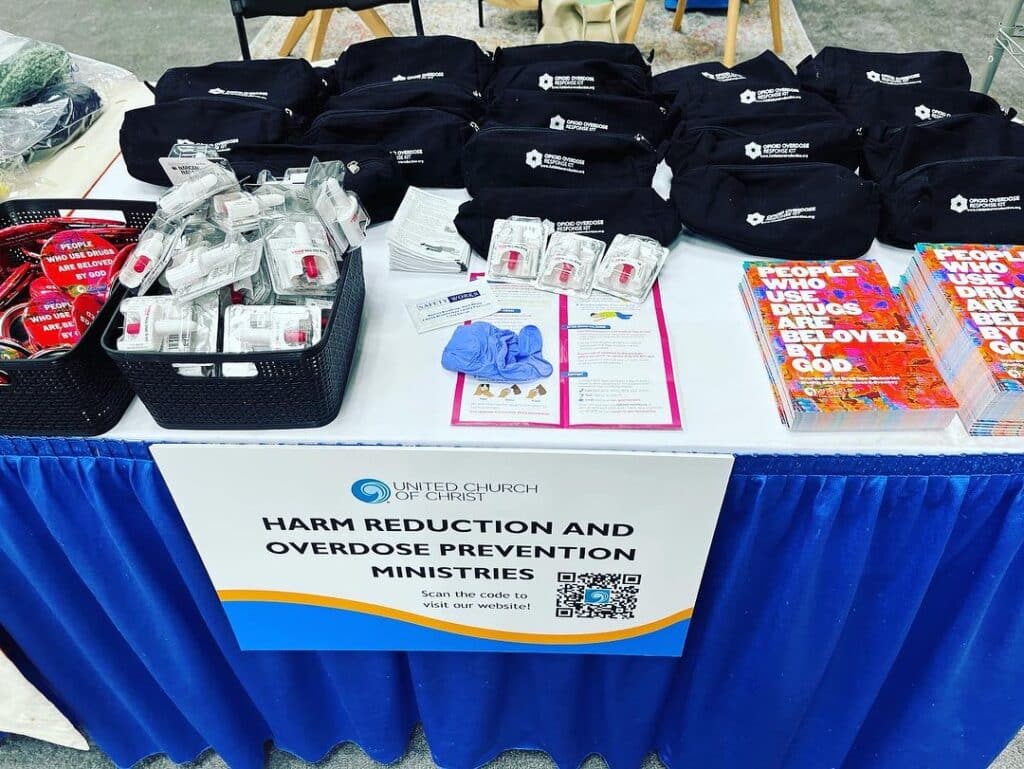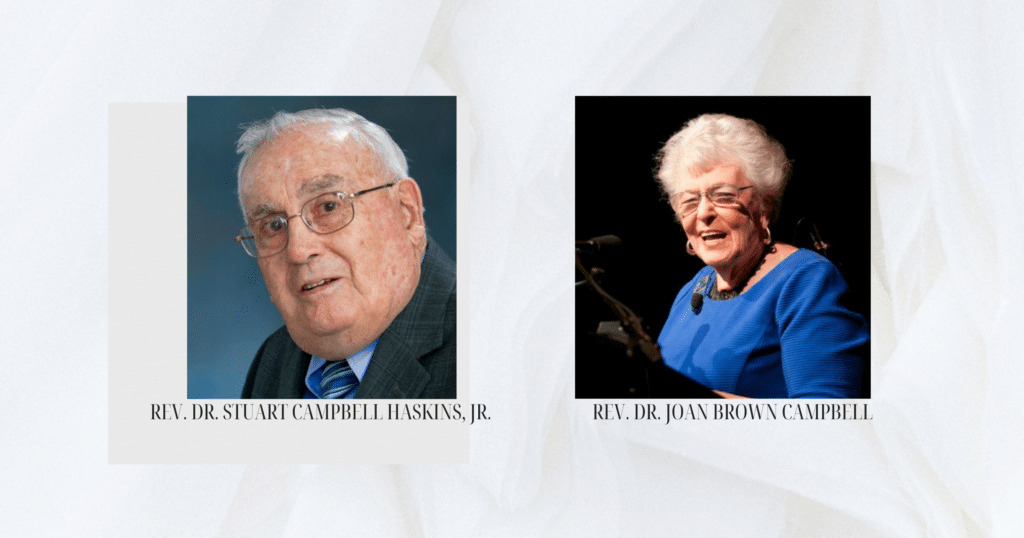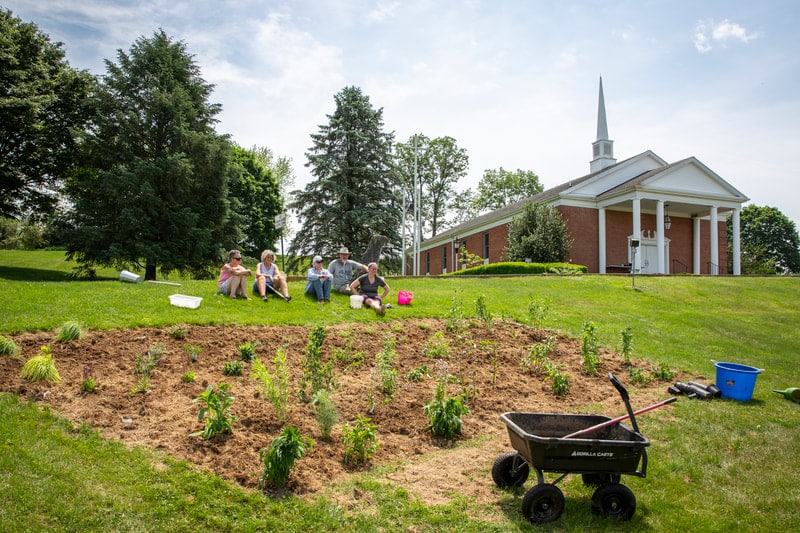New grant will support UCC harm reduction, overdose prevention ministry in reaching high-need areas
The United Church of Christ’s Harm Reduction and Overdose Prevention Ministries have plans to offer education and resources for UCC faith and lay leadership, specifically for certain areas of the Appalachian region.
It’s an area that has been disproportionately impacted by the overdose crisis in the United States. Residents within Appalachia were 41% more likely to die from a drug overdose than those in the rest of the country in 2019.
The project recently received a $60,000 federal grant, awarded by Centers for Disease Control and the National Association for County and City Health Officials, to fund this work that will happen in partnership between the UCC and Faith in Harm Reduction.
The Rev. Erica Poellot, who serves in the dual roles of program coordinator for UCC Overdose and Drug Use Ministries and executive director of Faith in Harm Reduction, said the organizations have laid some groundwork with city and county health departments in the area. Now they are seeking to build the capacity of faith leaders to be able to “help shape-shift the moral narrative on substance use and look at ways to help strengthen harm reduction in policy and practice on local levels.”
Changing the narrative
A narrative change, she emphasizes, is a key part of this work — particularly in faith-based settings. It was one focus of the 2023 resolution “Faithful Advocacy for Intersectional and Transformational Healing in Harm Reduction,” which General Synod passed last summer in Indianapolis.
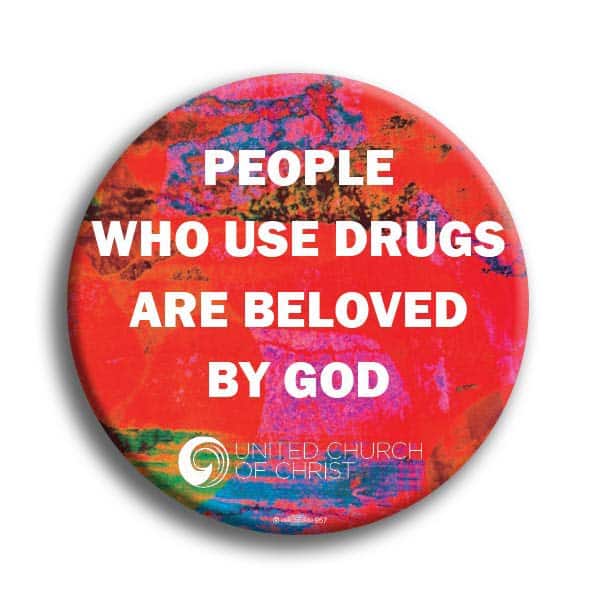
“We’ve had opportunities for a range of conversations since the resolution passed about examining or challenging the narratives that our institutions are telling about drug use and people who use drugs,” Poellot said. She points to how drug use often gets attributed to individual or community contexts rather than the structural context that enacts racist drug policies and institutionalized structural violence.
But a more justice-oriented perspective can shift the response.
“If we believe it to be a criminal or moral issue, we’re going to spend money on policing or locking people up,” she said. “We are hoping to expand the conversation to include this broader story, which is more hope-giving and life-giving.”
‘Support for people who are struggling’
The grant organizations plan to partner with UCC Conferences in the region to host informational sessions and identify at least 15 UCC congregations interested in receiving resources, education and mentoring. The intention is to deepen churches’ work to end overdose and expand connections that care for people touched by substance use.
The grant is based on the model of “academic detailing” used in clinical settings, Poellot said, which she describes as a practice of moving clinicians to support behavior change and narrative change with colleagues. This work takes that model to the “nontraditional context” of the connection between faith leaders, recognizing the significant influence they hold.
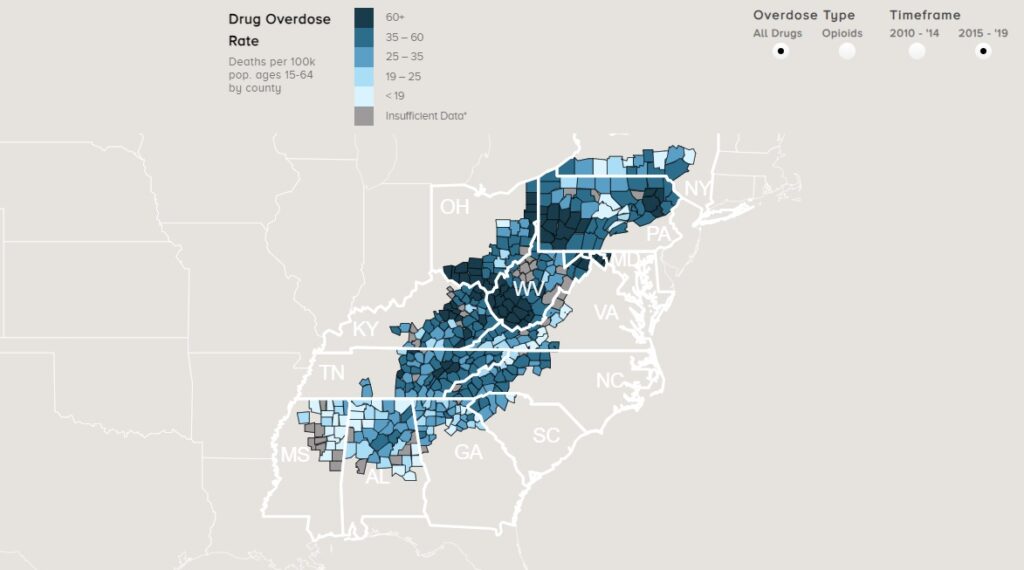
“If we are able to provide some targeted outreach and support to our colleagues, they are the credible messengers in their communities, and we are able to influence opportunities to grow support for people who are struggling, perhaps in isolation,” Poellot said.
‘A public stance that foregrounded hope’
The grant project is part of the response to the General Synod resolution on harm reduction. The Harm Reduction and Overdose Prevention working group is putting together an implementation plan to make the resolution more actionable, especially at the local congregation level.
Plans include starting a monthly conversation series to support families with a loved one facing substance abuse issues and building storytelling possibilities from people with lived experience.
The working group is currently seeking people to help lead and expand their work and is interested in gaining people from across the country and in different contexts. Those interested can contact Poellot.
In raising awareness, the resolution has already had an impact by being overwhelmingly affirmed and passed at Synod. Poellot says she has heard firsthand from people about how transformative it was for the UCC to “take a public stance that foregrounded hope, compassion and inclusion, which is not one folks who use drugs have often had in church.”
The hope of Poellot and her colleagues is that people can experience that more.
Content on ucc.org is copyrighted by the National Setting of the United Church of Christ and may be only shared according to the guidelines outlined here.
Related News
Peace Be With You…
“…And also with you” is the response on Sunday mornings and on occasions where the peace...
Read MoreBreaking barriers and forging loving partnerships: Two servants of God are remembered
This Eastertide, the United Church of Christ remembers the Rev. Dr. Joan Brown Campbell and...
Read MoreGetting down and dirty in the soil: Rural congregation discovers ‘life has the last word’
The Rev. Julia L. Brown has a love/hate relationship with this time of year. “I dislike...
Read More
